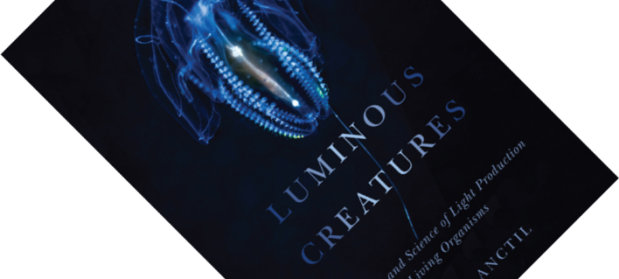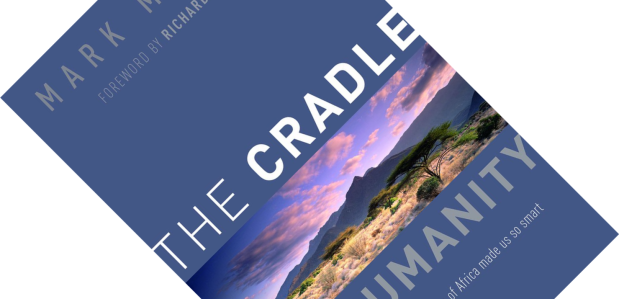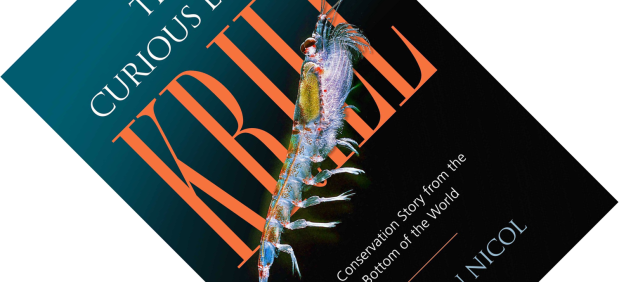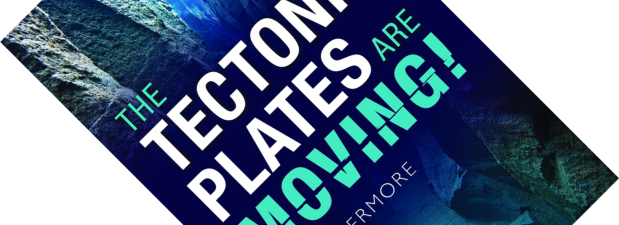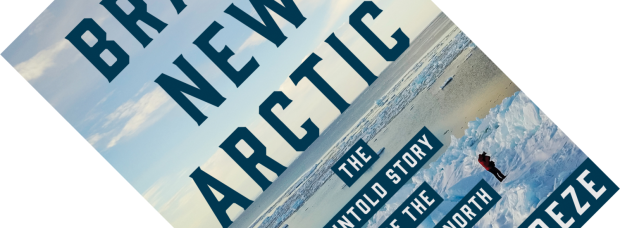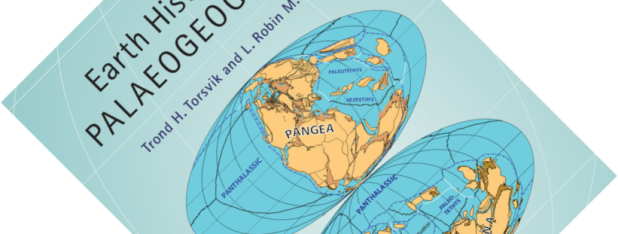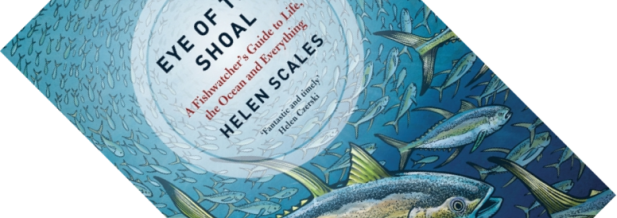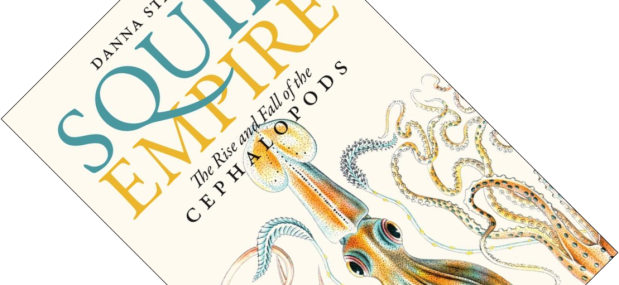American author Paul Greenberg has written two previous books about (eating) fish (American Catch: The Fight for Our Local Seafood and Four Fish: A Journey from the Ocean to Your Plate), so he is no stranger to the rather, errr, fishy topic of omega-3 fatty acid supplements. His new book, The Omega Principle, is much more than just a critique of the supplement industry though. This engagingly written reportage digs far deeper, asking where this oil comes from, and reports on that vast segment of the global fishing industry known as the reduction industry, and a food system out of whack with our needs.
oceans
Book review – Luminous Creatures: The History and Science of Light Production in Living Organisms
Beetles do it. As do fish. And squid, sharks, jellyfish, salps, dinoflagellates, and a host of other invertebrates. Bioluminescence, the production of light by living organisms, is one of nature’s most awe-inspiring spectacles and has fascinated humans since time immemorial. Luminous Creatures, written by bioluminescence researcher Michel Anctil, is a chunky book that charts the history of scientific research on this phenomenon by examining the lives and achievements of many of the key players involved. Along the way, it lifts the lid on many of the wondrous details of bioluminescence.
Book review – The Cradle of Humanity: How the Changing Landscape of Africa Made Us So Smart
The story of human evolution is constantly being refined with new findings and there is a glut of accessible books that cover this topic from various angles. Yet, with The Cradle of Humanity, geography professor Mark Maslin manages to provide an interesting and novel take on the subject, showing the reader how a happy combination of larger factors conspired to influence and steer our evolutionary trajectory. It could have ended up so differently…
Book review – The Curious Life of Krill: A Conservation Story from the Bottom of the World
Krill is one of those enigmatic invertebrate groups that feeds whole ocean ecosystems but remains itself little known. Even to a biologist such as myself (who has studied fish for crying out loud!), these critters are largely a set of question marks. I mean they are crustaceans, swim in the sea, are numerous and… oh look, a blue whale!
Book review – The Tectonic Plates are Moving!
What has plate tectonics ever done for us? Not having studied geology, I have a basic understanding of the movement of earth’s continents, but this book made me appreciate just how much of current geology it underpins. Marine geophysicist Roy Livermore, who retired from the British Antarctic Survey in 2006 after a 20-year career, convincingly shows here that the discovery and acceptance of plate tectonics was a turning point in geology, on par with Darwin’s formulation of evolution by natural selection. To paraphrase evolutionary biologist Theodosius Dobzhansky: nothing in geology makes sense except in the light of plate tectonics.
Book review – Brave New Arctic: The Untold Story of the Melting North
You might think that with the constant presence of the subject of climate change in news stories there isn’t much left to tell. But just because a certain sense of climate-change-fatigue might have set in (which is worrying in itself), climate change has not stopped. In Brave New Arctic, geography professor Mark C. Serreze gives an eye-witness account of how the Arctic is rapidly changing, based on his more than 35 years of personal involvement. And as he shows, there certainly are stories left to tell.
Book review – Earth History and Palaeogeography
This book is an example of what happens when you go down rabbit holes. I have been reading several books on the subject of palaeontology and geology lately, and I know that the face of the earth has shifted over the hundreds of millions of years of deep history covered in these books. But where were all the continents at different times? Many will have seen the iconic maps of the supercontinent Pangaea. But I want to know more. What happened in between? And before? As Nield tells in Supercontinent: 10 Billion Years in the Life of Our Planet, Pangaea was only one of several such supercontinents in Earth’s history. But I want to know more still. Where exactly were the continents located? And how did they move? Several accessible books have provided snapshots of iconic moments, such as the formation of the Himalayas (Mike Searle’s Colliding Continents: A Geological Exploration of the Himalaya, Karakoram, & Tibet) or the disappearance of the Tethys ocean (Dorrik Stow’s Vanished Ocean: How Tethys Reshaped the World). But I want to know more! This technical reference work contains lots of fantastic palaeogeographical maps that answered all my questions.
Book review – The Oceans: A Deep History
So, stop me if you’ve heard this one before, but it is often said that we know more about the moon than we do about our own oceans. However, palaeo-oceanographer and climate scientist Eelco J. Rohling points out we know more than you might think. His new book, The Oceans: A Deep History, takes the reader through a 4.4-billion-year history of Earth’s oceans. Much more than just a book about water, this is foremost a book about the intimate link between our planet’s climate and its oceans, as they are far more intertwined than you might give them credit for.
Book review – Eye of the Shoal: A Fish-Watcher’s Guide to Life, the Ocean and Everything
Helen Scales is a marine biologist, diver, and surfer, and is no stranger to writing good books. I have previously read Poseidon’s Steed: The Story of Seahorses, from Myth to Reality from her hand. The book after that, Spirals in Time: The Secret Life and Curious Afterlife of Seashells, received critical praise in the press and was shortlisted for the Royal Society of Biology book prize. Here, Scales turns her attention to fish. Is this another page-turner waiting to be recognised?
Book review – Squid Empire: The Rise and Fall of the Cephalopods
Cephalopods, the group of molluscs that include the octopus, squid, cuttlefish and nautilus, are some of the most fascinating invertebrates to live in the world’s seas. Especially the octopus is famed for its intelligence and mind-bending acrobatics, being able to squeeze through the smallest hole. There have been some fantastic popular books on cephalopods recently, from William’s entertaining Kraken: The Curious, Exciting, and Slightly Disturbing Science of Squid to several works focusing on the octopus (Godfrey-Smith’s Other Minds: The Octopus and the Evolution of Intelligent Life, Montgomery’s touching The Soul of an Octopus: A Surprising Exploration of One of the World’s Most Intriguing Creatures, which made me tear up in more than one place, Mather et al.‘s Octopus: The Ocean’s Intelligent Invertebrate, and Harmon Courage’s Octopus! The Most Mysterious Creature in the Sea). But, as marine biologist Danna Staaf remarks, what’s been missing is a popular book on the evolution of cephalopods. Having been fascinated with them since childhood, she eventually decided to write Squid Empire. All hail the squid!


